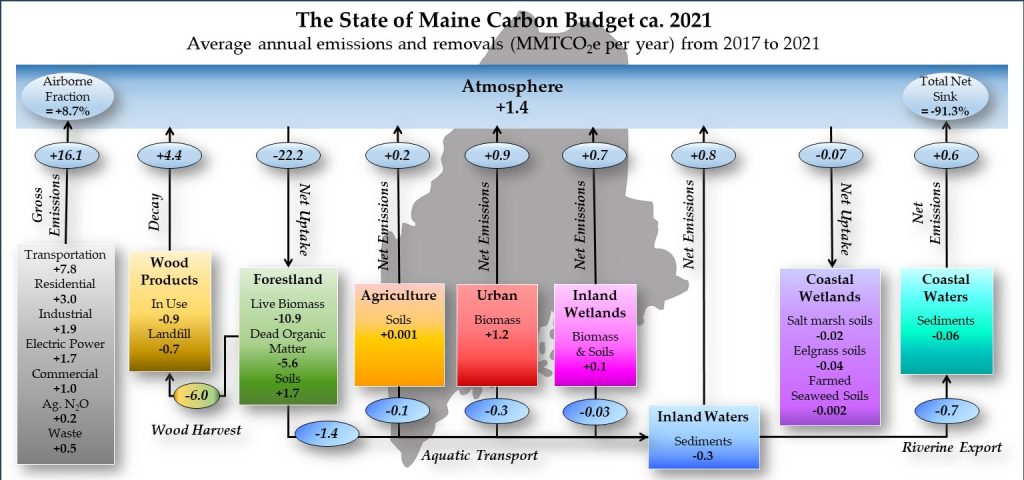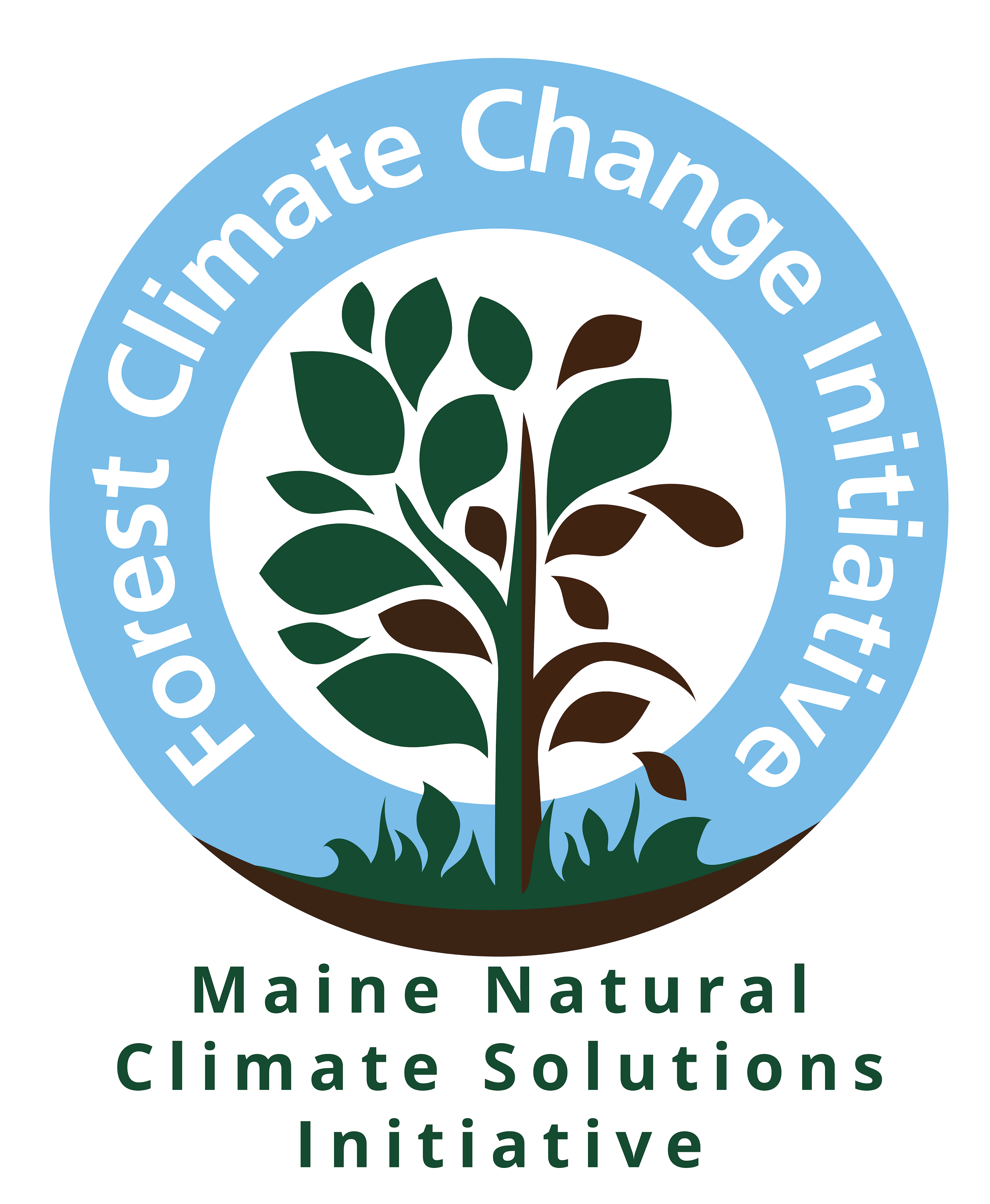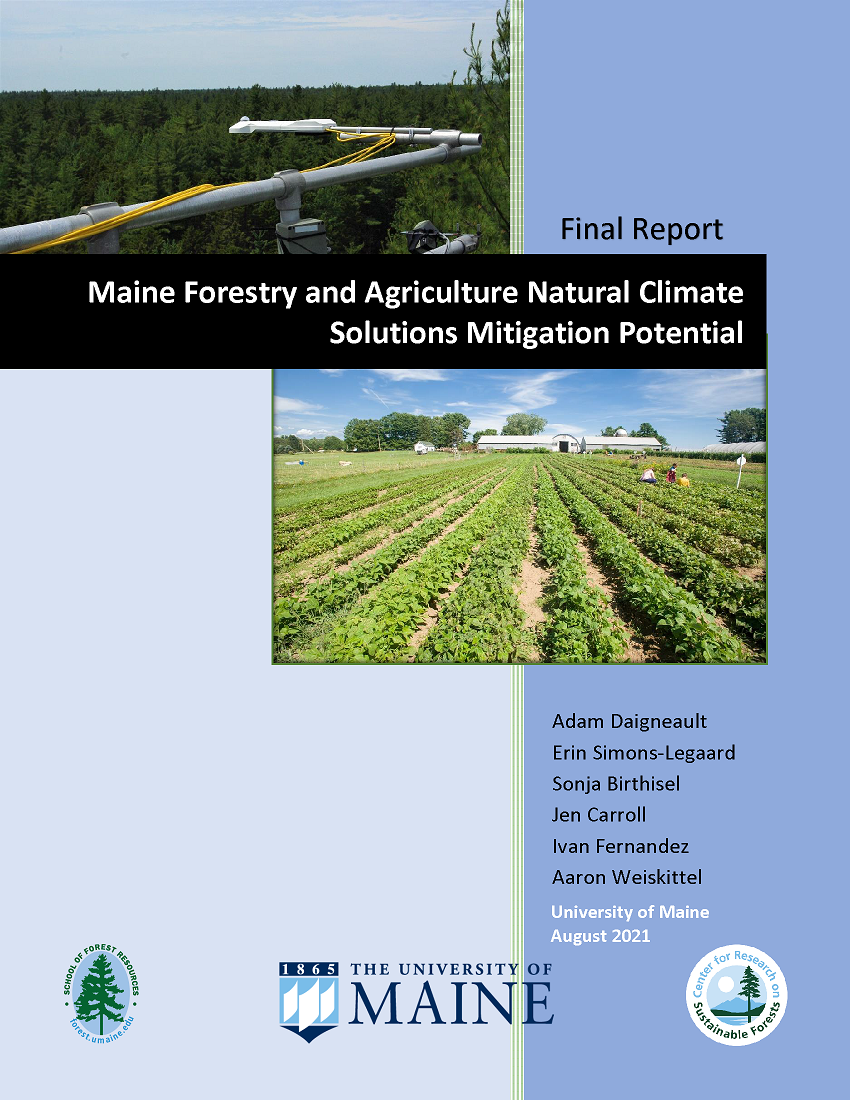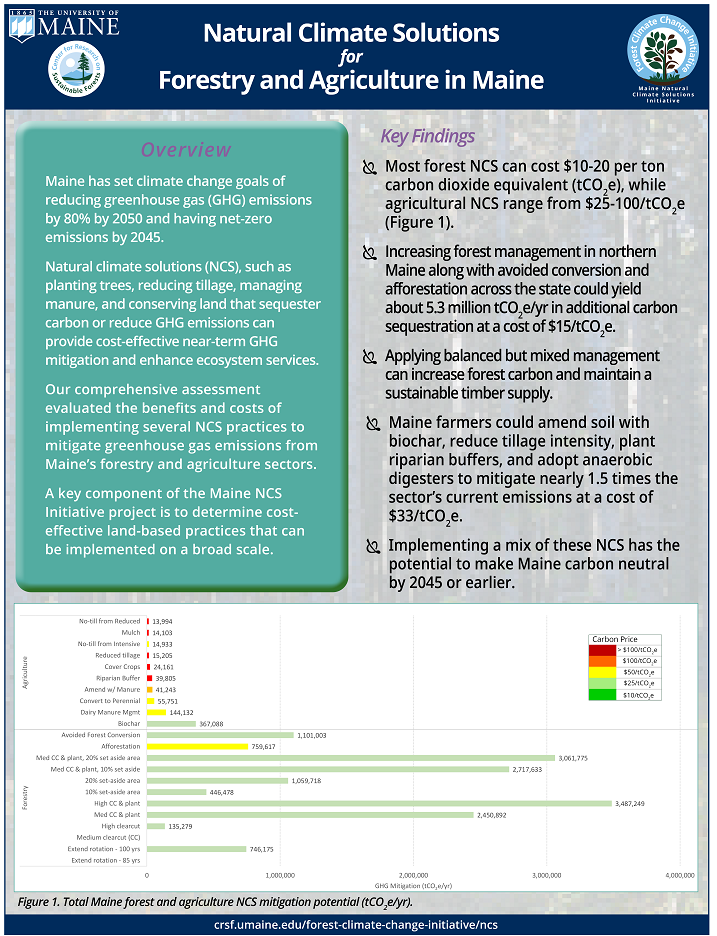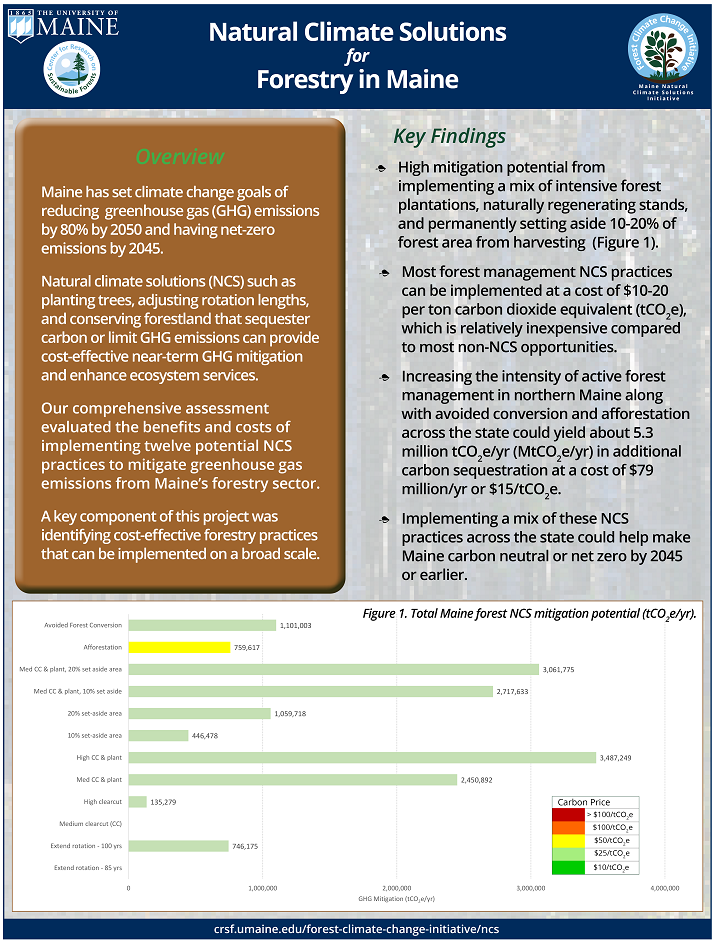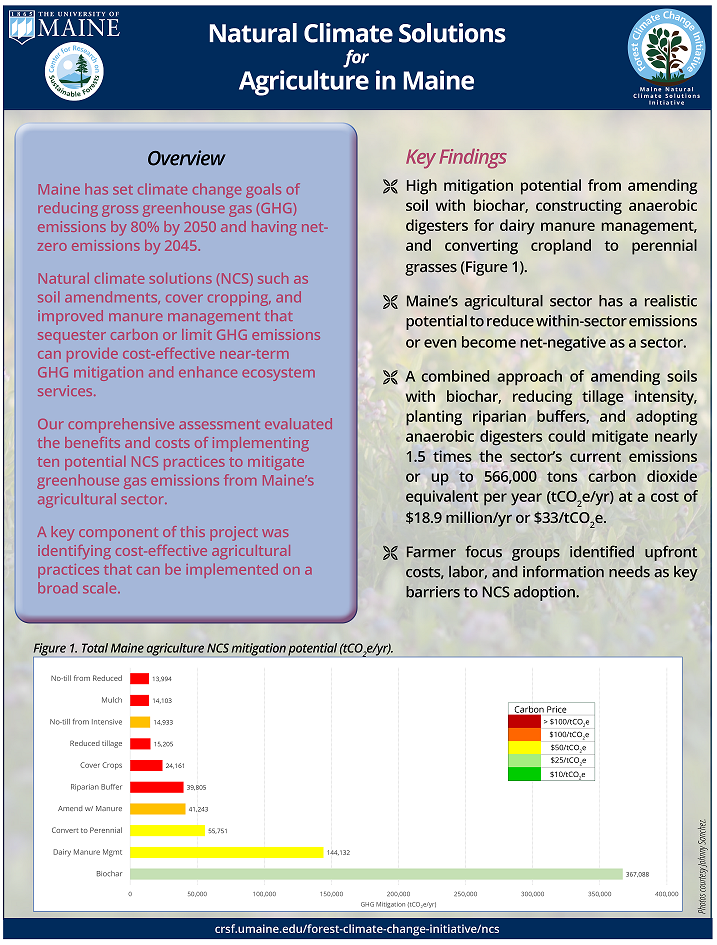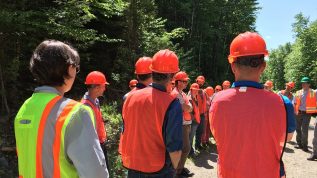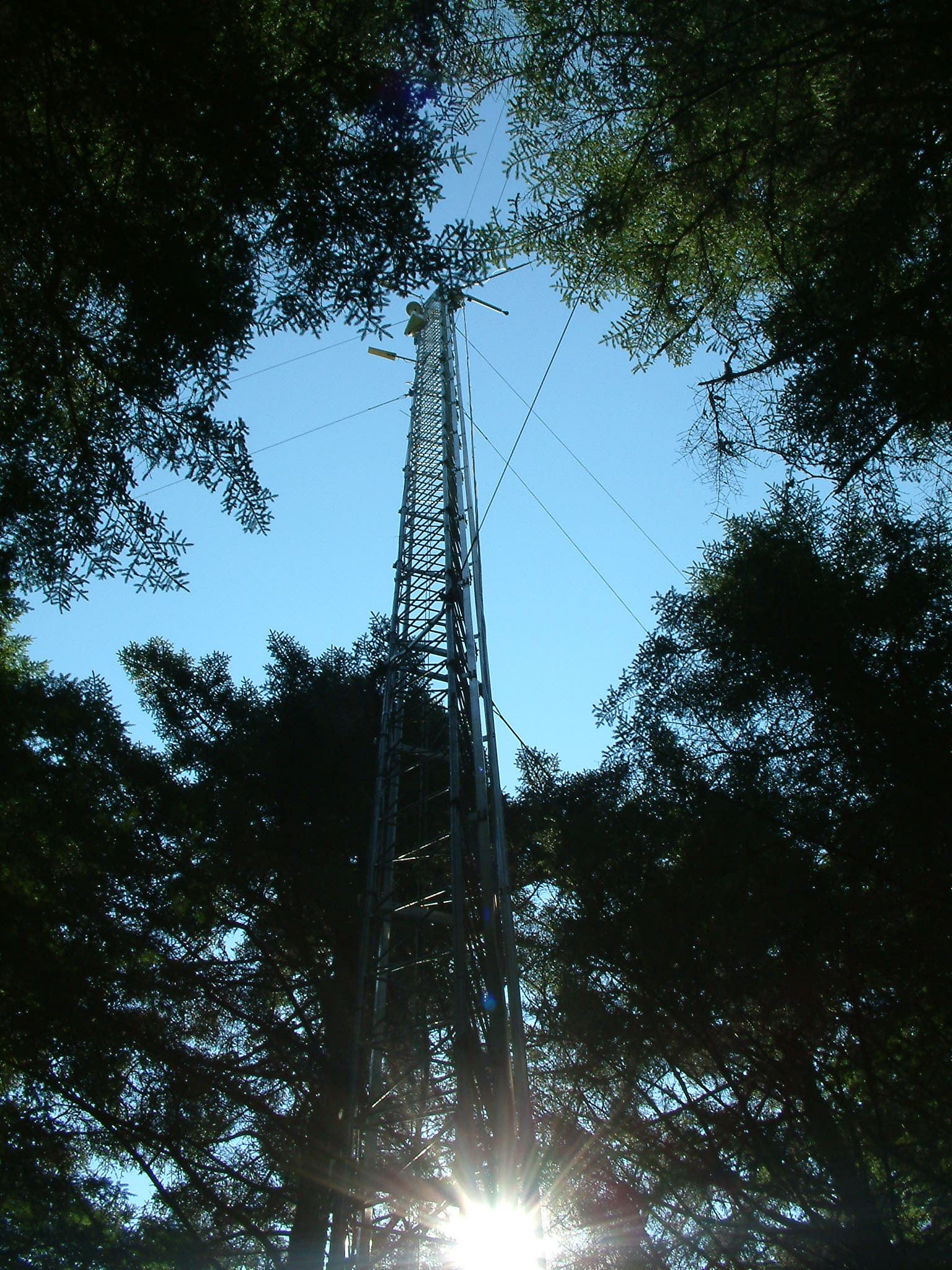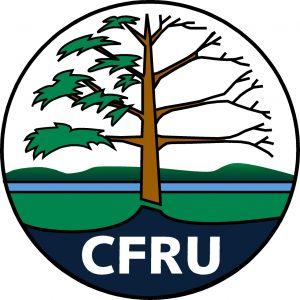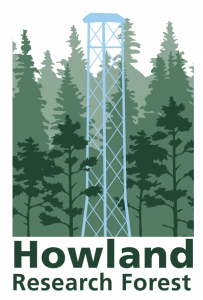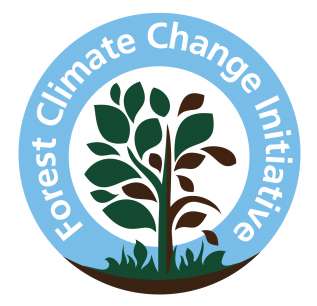
Forest Climate Change Initiative
The State of Maine’s Carbon Budget
Fall 2024: FCCI Researchers released Version 2 of the Current State of Maine’s Carbon Budget, ca. 2021. In addition to the budget, the Carbon Budget website provides a downloadable 2-page fact sheet, extended details on how the budget was calculated, and access to the calculations. Understanding the carbon budget is required for understanding human impacts on climate, guiding mitigation strategies, and informing future projections.
Questions?
Why are Maine’s forests important to the state’s carbon budget? How do forest growth and harvesting impact climate?
Answers (and relevant links to additional resources) to these and related questions can be found on our FAQ page.
FCCI Natural Climate Solutions
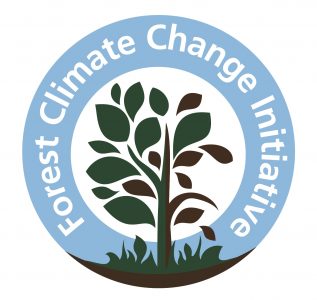
Science and Practice: Addressing Forest Climate Change in Maine Webinar & Field Tour Series
Visit Our Year 4 series webpage for details!
FCCI continued to host our forest climate change webinar and field tour series in 2023-2024. Year 4 focused on adaptation and implementation. Panelists included researchers, scientists, and stakeholders who addressed issues of climate change and how it is influencing Maine’s forests and forest economy. Please visit the series webpage for more information on topics and links to previous meeting materials.
YouTube: Addressing Forest Climate Change in Maine playlists
Maine’s Forest and Climate Change
Maine has a strong gradient in climate ranging from maritime to alpine, which helps to contribute to a diverse forest (Figure 1). There are a number of issues that link both climate and forests including tree growth and mortality, forest health, operability, ecosystem services (carbon storage, water quality, wildlife habitat), and recreation opportunities.
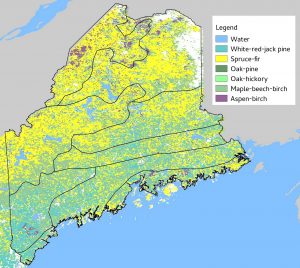
With a changing climate, Maine has and will continue to experience a warmer and wetter climate (Figure 2) with a higher potential for extreme events and greater weather variability in concert with a changing chemical climate (e.g. increased CO2, decreased sulfur deposition). This has significant implications for the role of forests in climate mitigation, greenhouse gas emissions, a changing renewable energy landscape, and adaptation that includes minimization of risk as well as new opportunities. In particular, implications of a changing climate include alterations in forest species composition and productivity, forest recreation opportunities, risk of pests and diseases, winter operability, and forest hydrological regimes.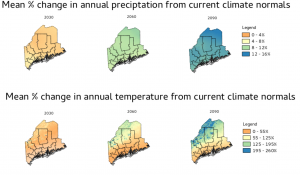
Figure 2. Downscaled projections of future temperate and precipitation based on an ensemble of 17 CMIP5 model predictions available at bit.ly/climate_estimates. Map created Dr. Aaron Weiskittel.
The University of Maine has significant expertise on climate and forest resources, which exists across academics units, centers, and institutes. This web portal is intended to serve as a point of access to these resources and encourage networking among university expertise as well as external stakeholders.

